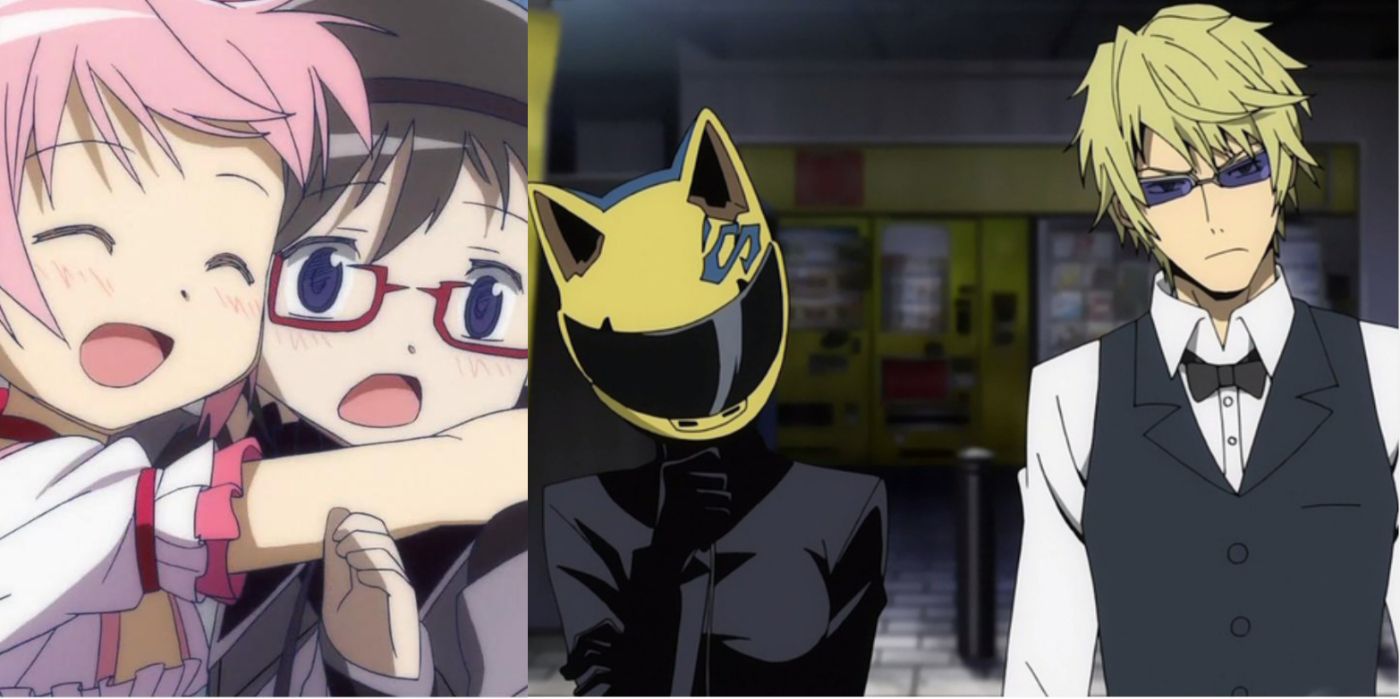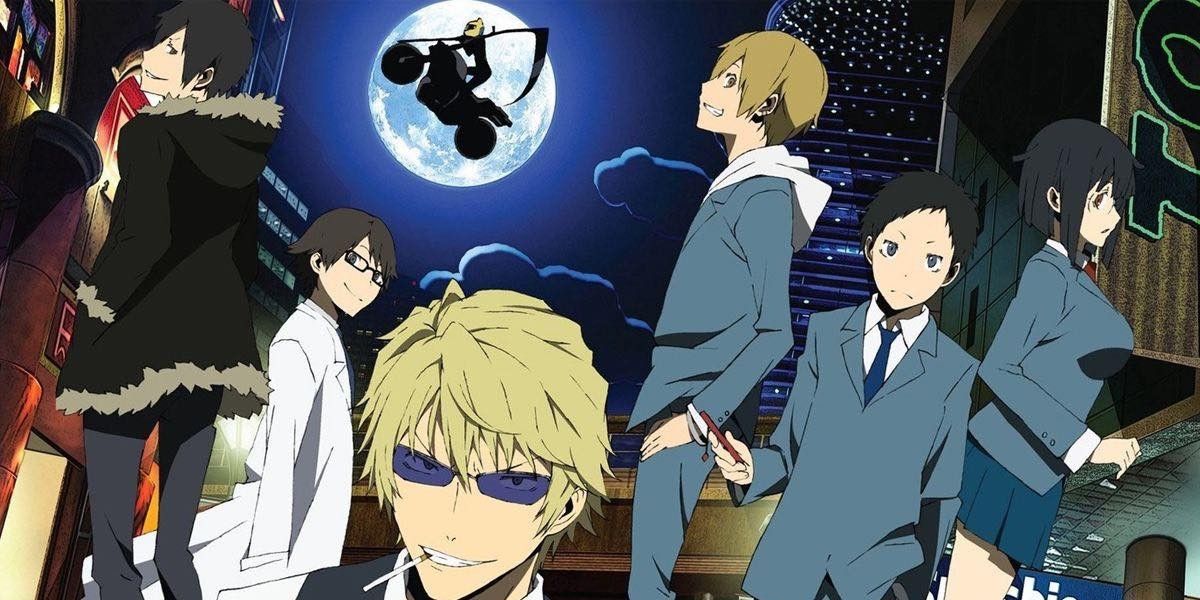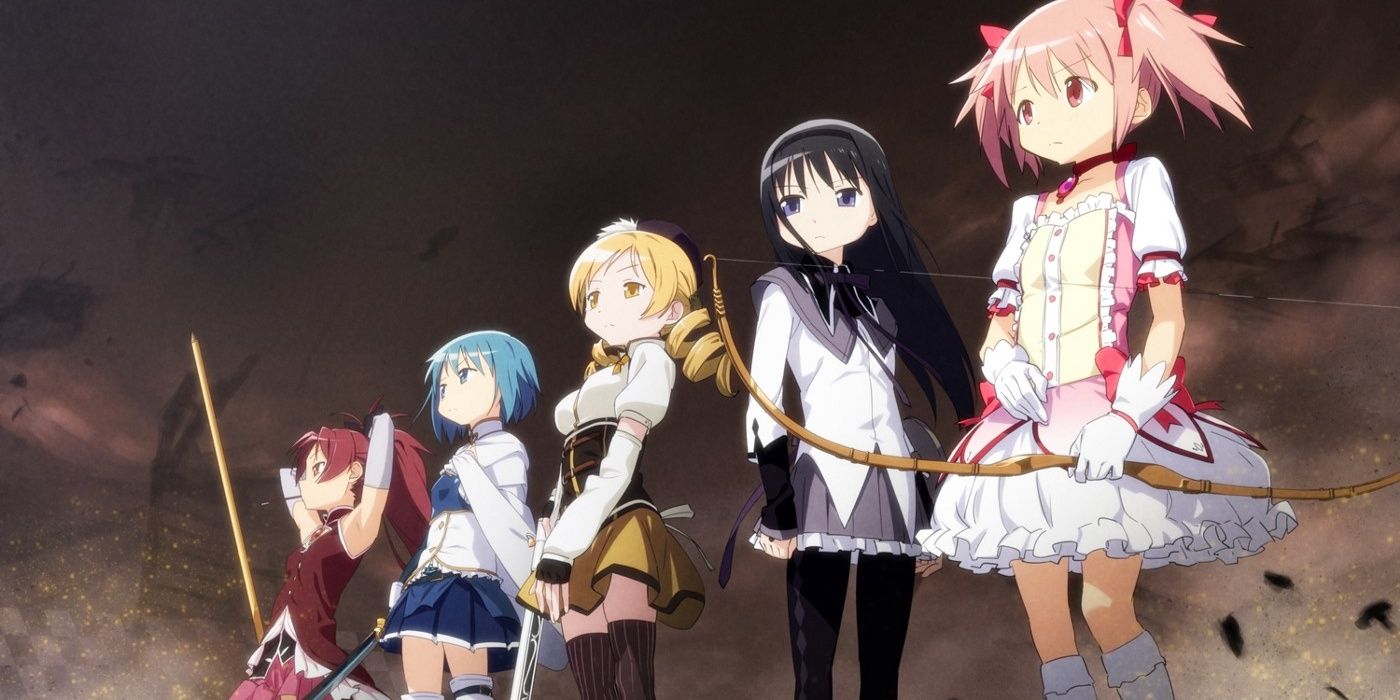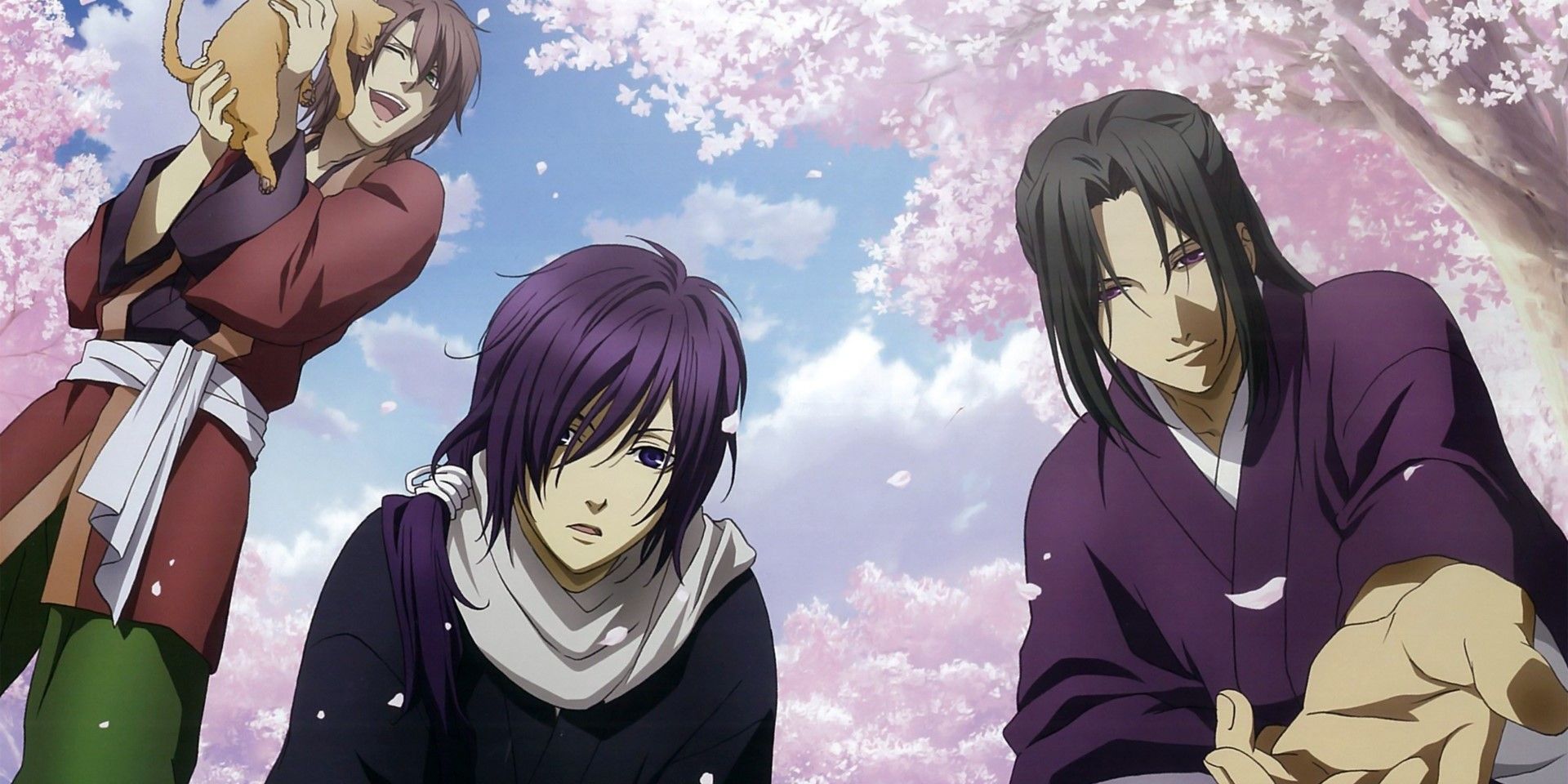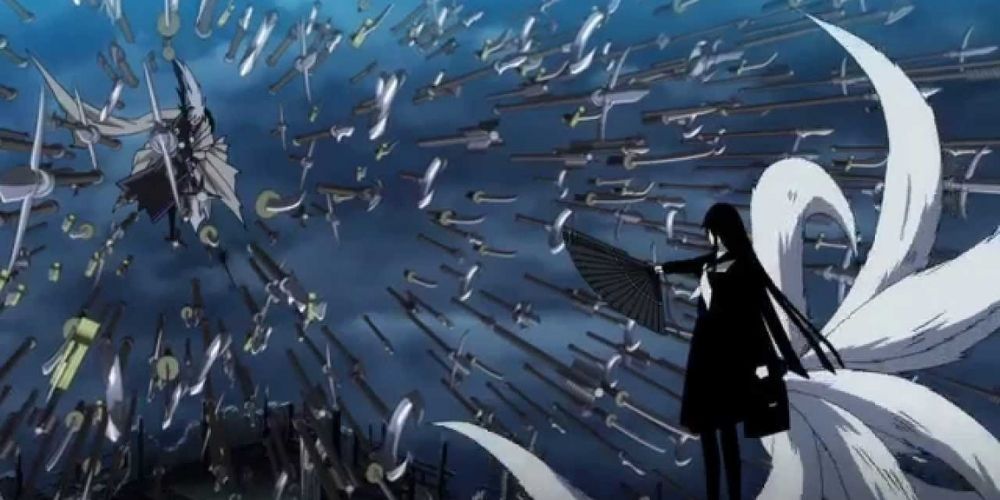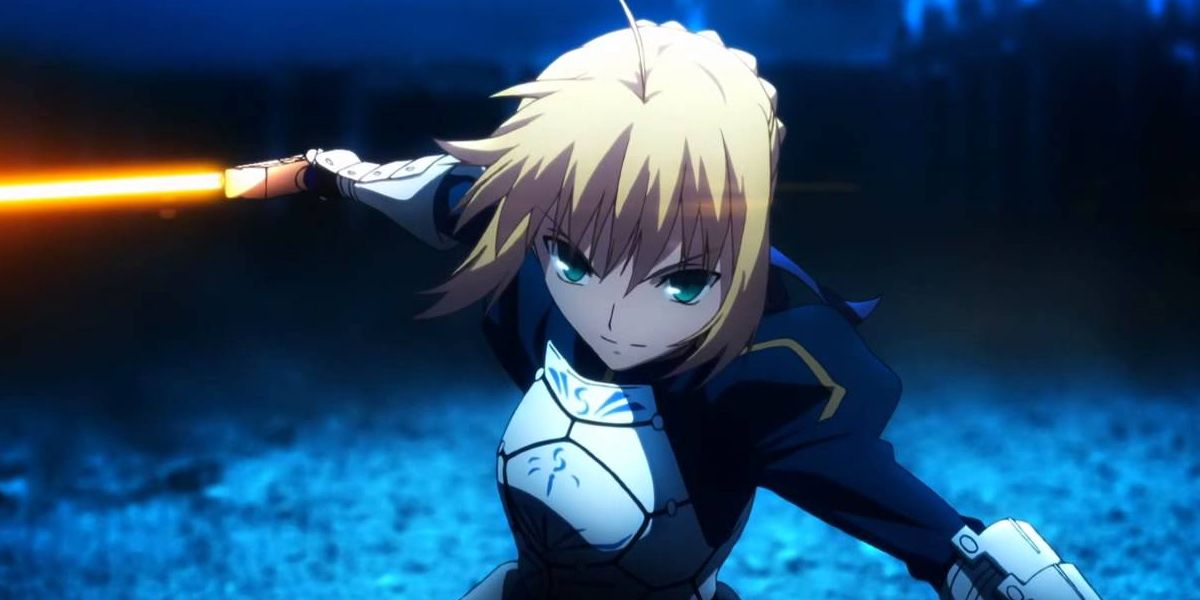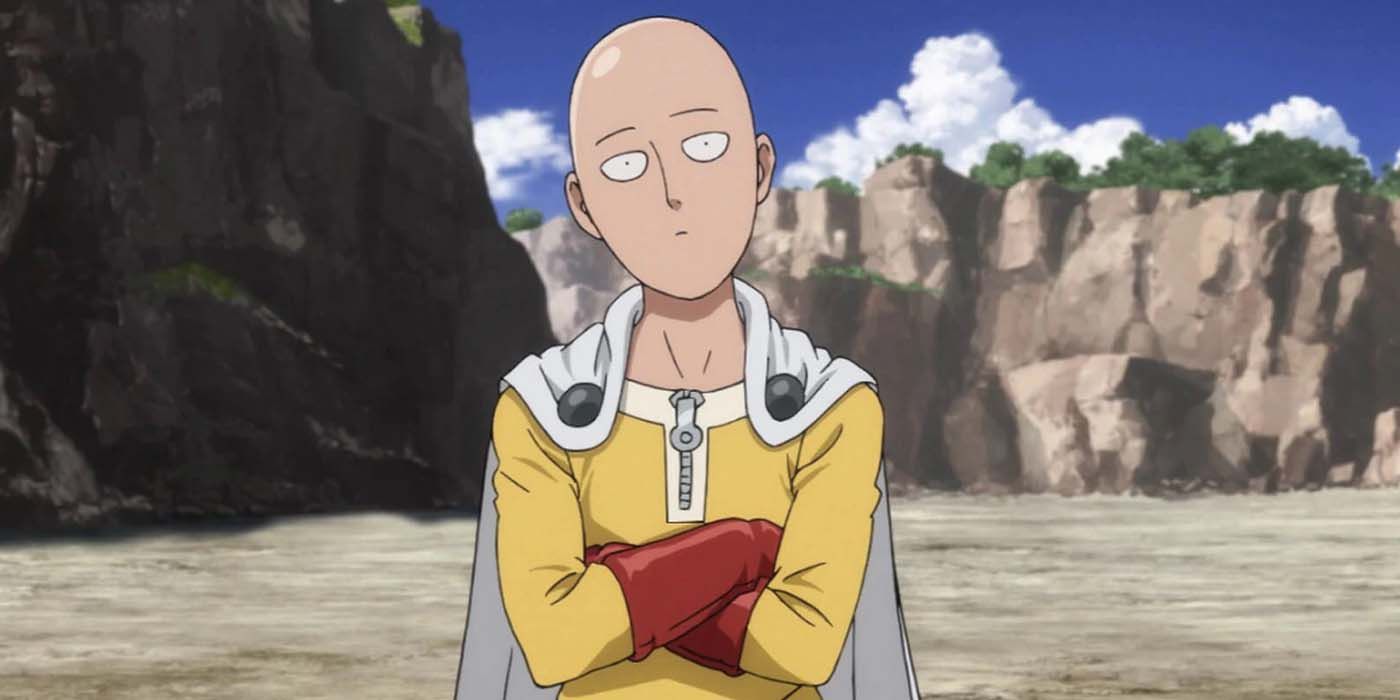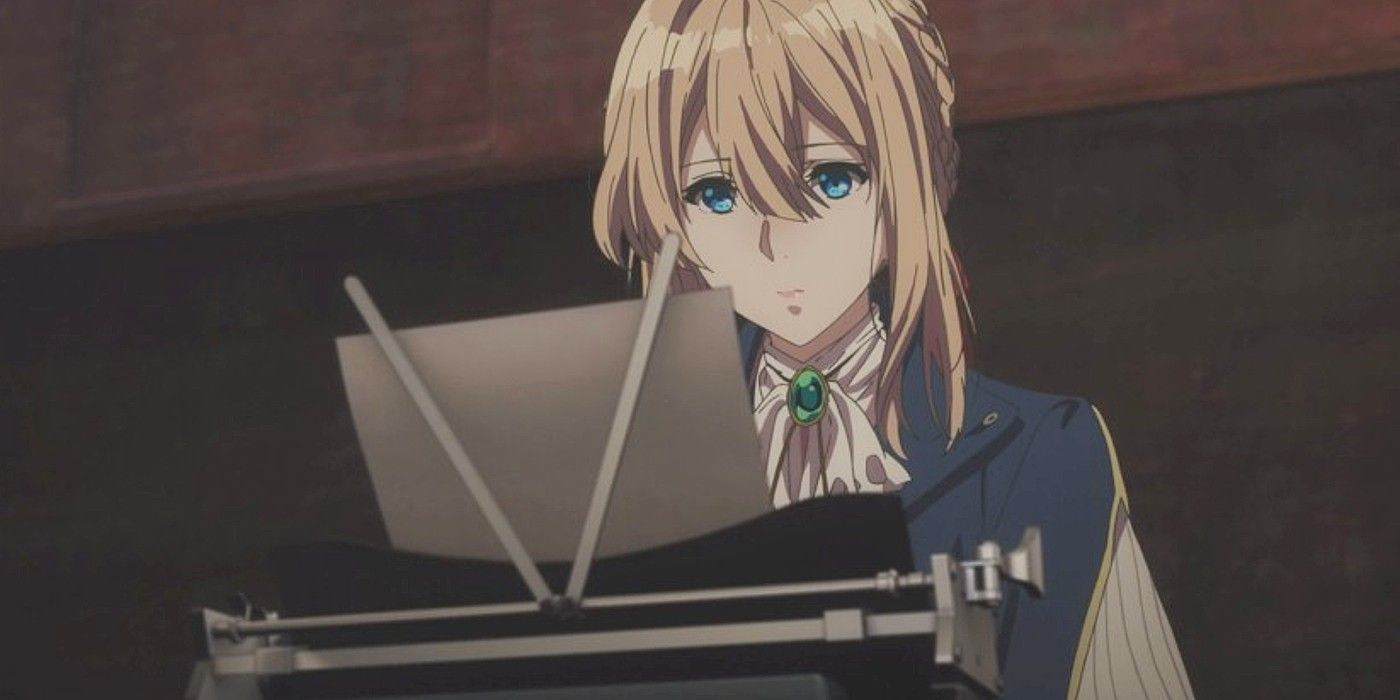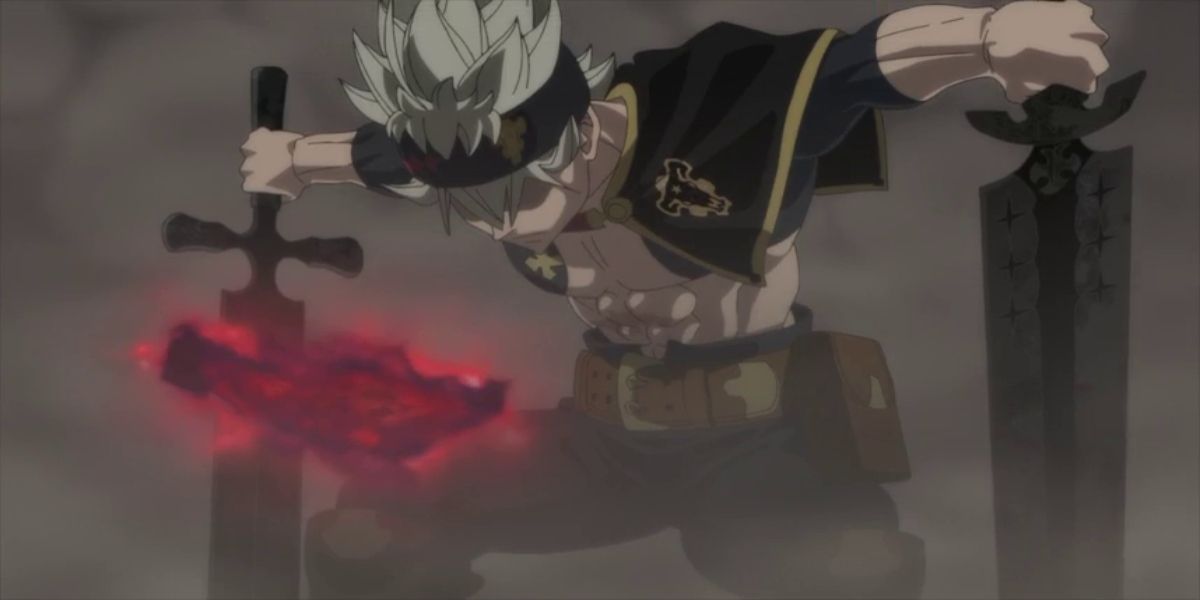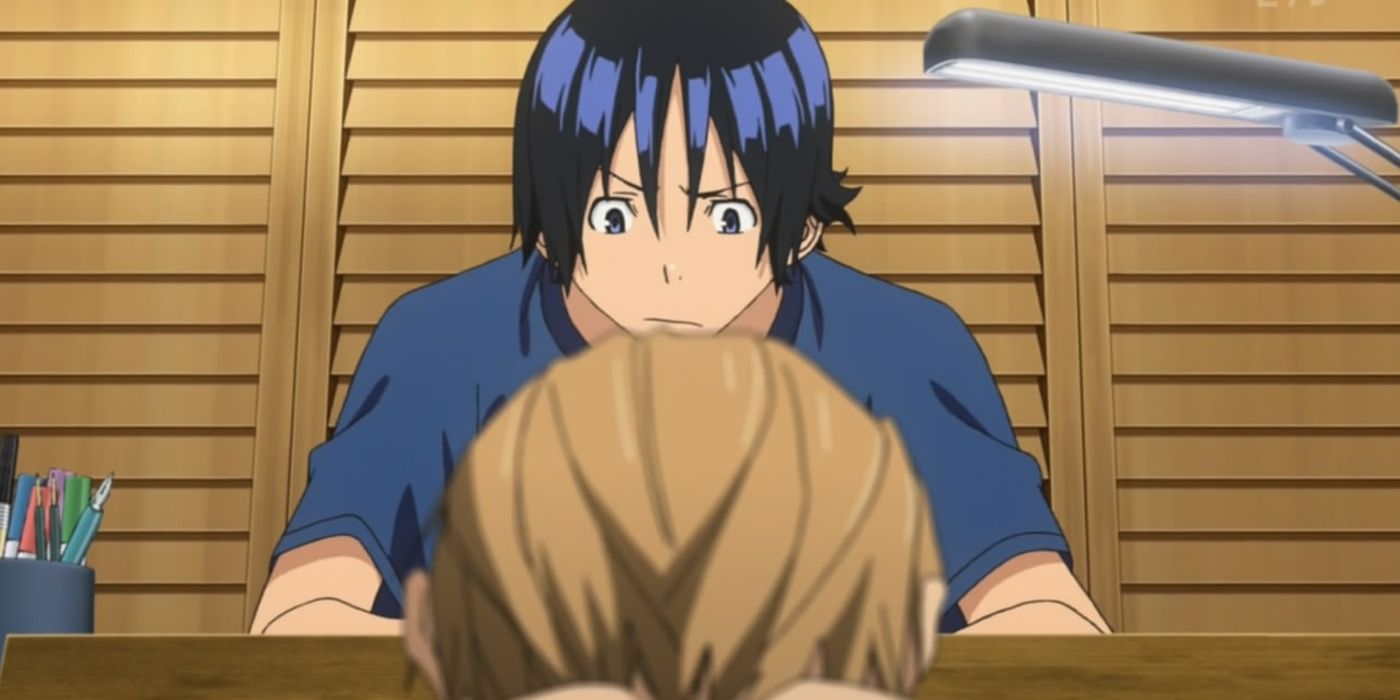Plenty of fantastic anime came out of the 2010s, from reboots of retro shows to newer, artsy productions. While many fans might cringe remembering that era, they cannot help but acknowledge the strides made within the anime genre during that time.
Revamped iterations of iconic anime from the 80s and 90s, such as the newest Jojo’s Bizarre Adventure series, trended in the 2010s. Meanwhile, shows based on video games, like the otome-inspired Hakuoki or the action/adventure Fatefranchise, received well-directed animes. Across all subgenres, the 2010s saw works made famous for their various virtues.
10 Durarara!! Was Convoluted But Incredible
Durarara!!, released in 2010, was a controversial anime that fans either loved or hated. For many, the anime’s last episode ruined it. Plus, the story had many characters and no clear focus, making the plot hard to follow for casual viewers.
However, the show scored highly on different anime review sites thanks to its deep plot, great soundtrack, and interesting cast. While fans did not get to see a clear conclusion to everyone’s story, it was well-received critically. This success was contrary to what many expected.
9 Madoka Was An Unexpectedly Dark Magical Girl Experience
As a result of Puella Magi Madoka Magica’s dark tone, the protagonist, Madoka, was unlike any other magical girl. She had to fight for her life, her friends’ lives, and the universe’s fate. Yet, this did not happen in a “love and light” way, as more traditional magical girl anime such as Sailor Moon did.
Pitching such a dismal premise sounds like it would turn fans off from the anime, but the studio marketed Madoka as a Seinin instead of Shojo or Shonen. It knew its audience, and it had a lot to add to the genre at large.
8 Hakuoki Was An Otome-Game-Inspired Anime
Usually, anime based on otome games did horrifically on the ratings charts, and this was often because of their cheesy premises and generally low budgets. Yet, among the many otome-game-inspired anime, Hakuoki was among the few to impress audiences.
This 2010 anime did so well that it garnered both a prequel and sequel series on top of an OVA and films. Though each installment was not equally successful, it was a dark-horse series that surprised many anime fans.
7 Nura: Rise Of The Yokai Clan Should Have Done Better On The Charts
Nura: Rise of the Yokai Clan was one of the many Shonen Jump manga that didn’t complete its anime. The studio dropped the show after two seasons spanning from 2010 to 2011. The manga, Nurarihyon no Mago, was a celebrated work, and the anime did not do poorly either.
Though it was a run-of-the-mill Shonen series, it had a sizable following. Unfortunately, it competed with many other beloved Shonen series released in that same time frame, including Hunter X Hunter, Ao no Exorcist, and the ongoing Naruto Shippuden. Still, the show was better made than it got credit for being.
6 JoJo’s Bizarre Adventure Started Its Reboot
Jojo’s Bizarre Adventure became one of the most popular ongoing anime. The reboot fans have come to know and love released its first episode in October 2012. It even sparked a TikTok trend where people emulated JoJo’s best poses.
Though its first season, Phantom Blood, didn’t rank among the series’ best, it introduced the iconic Dio Brand and set the groundwork for the following seasons. From there, the show only got more successful with each season. While the wild eccentricities and absurdist qualities inherent in the show should have turned more fans away, they were the very thing that captivated fans.
5 Fate/Zero, Based On A Video Game And Light Novel, Should Not Have Translated So Well Into An Anime
With its high-budget animation, intriguing mystery, and well-rounded characters, the Fate series (its most popular installments being Fate/Zero and Fate/Stay Night: Unlimited Blade Works) surprised fans.
The show followed multiple characters and the Heroic Spirits that served them. Typically, such a large cast would detract from the story’s efficacy, but this was not so. Furthermore, anime based on light novels or video games ran the risk of feeling rushed or convoluted, but these two installments proved otherwise.
4 One-Punch Man Should Have Been A One-Hit Wonder
One-Punch Man had a hilarious premise: one man gained unbeatable strength by doing menial workouts. To raise the absurdity levels further, the protagonist, Saitama, remained undefeated and always won by landing a single punch. Hence the name, One-Punch Man.
At first, fans expected this to be a “one-hit wonder.” However, the show surprised fans with its ability to balance the stakes while maintaining its original concept, and Saitama had many amazing fights despite his overpowered ability. The show became a master class on keeping a Shonen series interesting when the hero couldn’t lose.
3 Violet Evergarden Was A Delightfully Slow Burn
Violet Evergarden was another light-novel-based series. It followed the title character as she struggled to find life’s meaning after her years as a soldier. Critics and fans held the series in high regard, as it ranked among the best slice-of-life anime on myanimelist.
Though the show’s premise didn’t seem too exciting at first, fans were surprised to find a touching, slow-burn anime that reached the heart of what it meant to be human. Combined with its beautiful animation and superb voice acting, it quickly proved itself a better show than fans had initially expected.
2 Black Clover Seemed Like A Ripoff Of Other Anime
Black Cover was another Shonen anime that seemed a cookie-cutter product of the genre. It had a loud, brash main character whose rival looked down on him. Plus, fans couldn’t help but see the visual resemblance with characters like Fairy Tail’s Natsu Dragneel. Furthermore, Black Clover’s magic system seemed eerily like Fairy Tail’s (there were many undeniable similarities between Black Clover and Fairy Tail).
However, upon watching the anime, fans enjoyed it. The characters were likable, the worldbuilding was well-done, and the plot was entertaining. It wasn’t the best anime ever, but it was surprisingly fun and way better than one would expect of an anime that seemed to borrow so much from its predecessors.
Bakuman was an anime about a mangaka, which simultaneously sounded too meta and boring. Who wanted to watch a guy draw on screen for thirty minutes? Yet, the show proved itself an inspirational and touching series that sparked fans’ intrigue.
More recently released animes like the fine-art-oriented Blue Period have achieved the same feat, but Bakuman was among the most successful. Viewers got to see junior high students struggle to achieve a dream to which many anime fans can relate.
